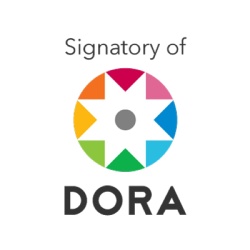The virtual identity is formed in light of the diversity of cultural contexts shared on social media
تشكل الهُوية الافتراضية في ظل تنوع السياقات الثقافية عبر مواقع التواصل الاجتماعي
Abstract
The concept of the virtual identity is considered one of the concepts emerging in the academic,humain and social fields, as it has coincided with the enrollement of social media with their various research requirements to the knowledge system in the last two decades. This is why the study came to show how this identity is formed and how it is promoted through social media and cultural contexts involved in it. The study concluded with the conclusion that the dominance and the sweep of social media, our life is the birth new identities based on stereotypes and similarities, and social can be a positive way of asserting oneself.
Downloads
References
Najjar, sihem. (2011). Les pratiques sociales de l’internet et les transformations des identités et des liens sociaux au Maghreb-étude de communauté diasporiques tunisienne. Méditirranée. N116. http://mediterranee.org/5383
- Arabic references in English :
Giddens, A. (2005). Sociology. Translated by F. al-S. Beirut, Lebanon: Arab Organization for Translation.
Zaid, B. M. (2012). Virtual Communities as an Alternative to Real Communities. United Arab Emirates University.
Barney, D. (2015). Network Society. Translated by A. al-J. 1st ed. Qatar: Arab Center for Research and Policy Studies.
Shayegan, D. (2016). Philosophy of Religion: Identity in Forty Facets. Translated by H. N. 1st ed. Baghdad, Iraq: Centre for Studies.
Bauman, Z. (2016). Liquid Modernity. Translated by H. A. J. 1st ed. Tunis: Arab Network for Research and Publishing.
Rahouma, A. (2007). The Internet and the Socio-Technical System. 1st ed. Beirut: Centre for Arab Unity Studies.
Shamdeen, M. (2017). Virtual Identities in Arab Societies. 1st ed. Rabat, Morocco: Dar al-Aman.
Jaberi, M. A. (1999). Globalization and Cultural Identity: Between Scientific Research and Ideological Discourse. Thought and Criticism Journal, 3(22), 13-15.
al-Sanousi, T. (2019). Social Media Platforms and the Reality of Self-Identity Construction. Arab Journal of Media and Communication Sciences, Issue 3. Recovery date: 15/01/2021. from www.diraset.com/node/128
Yahya, M. A. M. (2010). Technology Overview. Recovery date: 20/01/2021. from https://tecbytec.rigala.net/t7-topic
Hussein, Q. M. (2020). Virtual Reality and Information Security. International Conference on Technologies and Humanities. Sharm El-Sheikh, Egypt. Recovery date:20/01/2021. From https://www.researchgate.net/publication/338839864_alwaq_alaftrady_wamn_almlwmat
Farghaly, I. (2011). The Future of Combining Two Cultures (Virtual City and Contemporary City). al-Arabi Magazine. Recovery date: 12/01/2021. From www.balagh.com
al-Ayashi, A. F. (2019). Virtual Identity and Residence Beyond Self. al-Hiwar al-Mutamaddin, Issue 6244. Recovery date:10/01/2021. From www.ehewar.org

This work is licensed under a Creative Commons Attribution-NonCommercial 4.0 International License.









